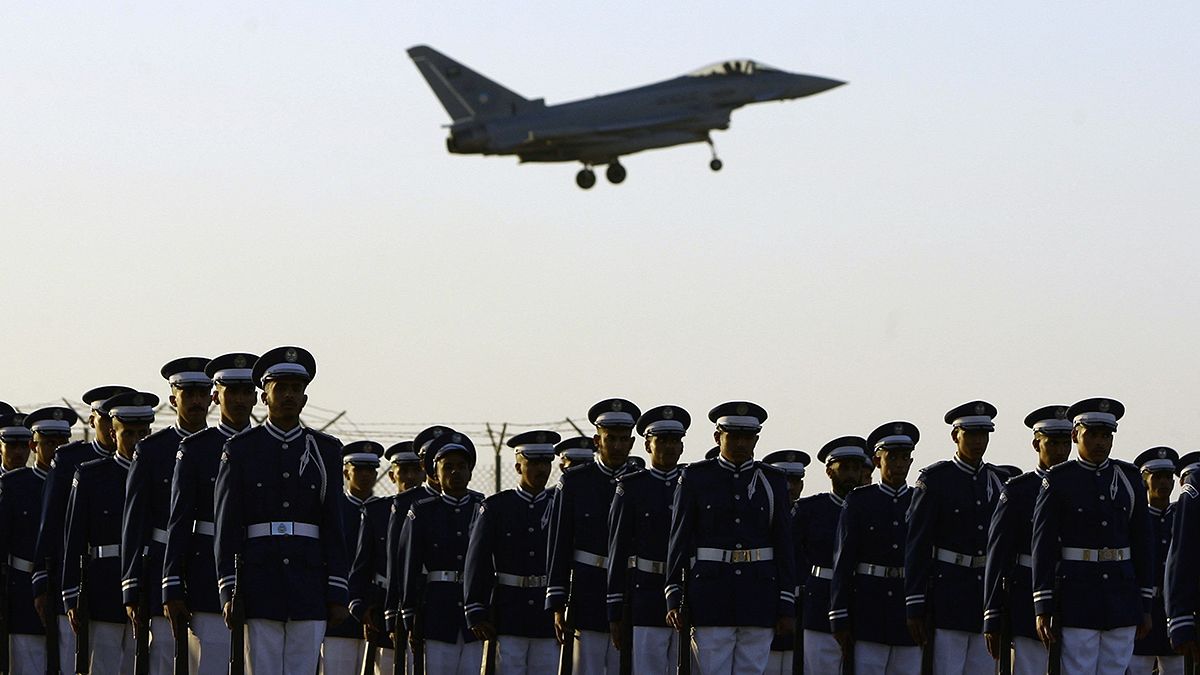Saudi Arabia's role in the Syrian conflict is evolving as it sends warplanes to a Turkish base has openly declared it is willing to intervene on the ground if the US-led coalition introduces ground tr
Saudi Arabia’s been mulling over its entry into the Syrian conflict for some time. It has just sent warplanes to a Turkish base and Riyadh has repeated that Bashar Al-Assad cannot be part of the country’s future. Now it is openly declared it is willing to intervene on the ground.
On Sunday Saudi Foreign Minister, Adel Al-Jubeir said: “Should the US-led coalition make a decision to introduce ground troops into Syria, the kingdom of Saudi Arabia would be prepared to participate by deploying special forces with those troops.”
A peace deal was expected to be unveiled during last weekend’s Munich Security Conferenc,e but the gathering only served to highlight that Syria’s future has become a complex, high-stakes chess game involving America, Russia and 15 other powers.
Speaking to euronews Russia’s Prime Minister Dmitry Medvedev said: “Nobody wants a new war. A ground operation is a full-scale, long war; this has to be taken into consideration.”
But US Secretary of State John Kerry sounded a different note: “There is a possibility there will be additional ground troops on the ground fighting Daesh.”
One day on from Munich and all sides have been scrambling to deny there is a new “Cold War climate”, but with violence escalating on the ground the fighting appears likely to intensify. Despite the agreement to halt hostilities for humanitarian aid deliveries, it is feared the pause could allow the rival factions to consolidate their positions.
When the conflict began five years ago, Bashar Al Assad’s forces were engaged against the rebel Free Syrian Army. But soon after several other groups joined the fighting, among them ISIL and Peshmerga Kurds.
While the Syrian army and ISIL battled against everyone else, the Kurds, aided by the rebels, concentrated their attacks on Islamic State militants.
An already extremely complicated situation became geopolitical chaos with the arrival of major and regional powers: USA, Russia, Turkey, Iran and Saudi Arabia; among others.
Officially, they all had one common enemy – ISIL. The US-led coalition came together specifically for that. Russia entered the war to fight Islamic militants; the same reason as Turkey. But on the ground, each party is pursuing its own agenda.
Syria’s erstwhile ally, Russia has said it has essentially been bombing rebel positions. Its air strikes have nonetheless allowed the Syrian government to recapture vital areas, like Aleppo, the country’s second biggest city.
For its part, Turkey has hit areas held by Syrian Kurds, whom America considers an important ally against ISIL. Now with some sections openly talking of putting Turkish and Syrian troops on the ground, it appears the violence is more likely to spread than stop.
